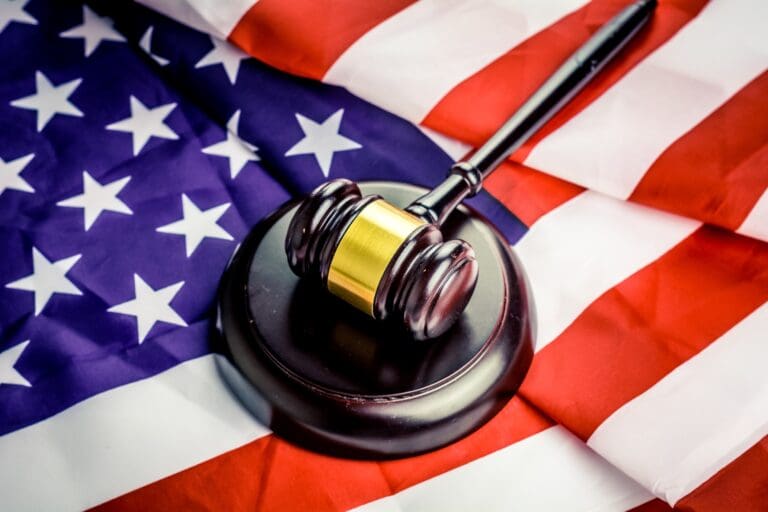Our VA disability appeals lawyers are qualified to help you dispute a denial or reduction of benefits.
Summary
- Veterans have the right to appeal VA decisions during the disability claims process.
- The VA may deny a disability benefits claim because a veteran did not show an in-service connection, provide a diagnosis, or exhibit disabling symptoms.
- The major appellate paths include filing a Supplemental claim, requesting a Higher Level Review, and pursuing a Board of Veterans Appeals hearing.
- Veteran disability appeals lawyers oversee evidence collection, building the case, and presenting the appeal.
While on active military duty, service members can suffer exposure to a variety of occupational hazards that go beyond enemy fire. Even if you never served in combat, you may have been injured, developed an illness, been exposed to hazardous or toxic chemicals, or experienced another in-service that may serve as the basis for VA disability compensation.
Unfortunately, many veterans encounter resistance when attempting to collect these benefits. Our experienced VA disability appeals lawyers can work with you to pursue the path that presents the best chance for success. Schedule a free consultation with us by calling (855) 573-1503 or submitting a contact form.

Contact Us Today
We Will Fight For Your Benefits
We guarantee 100% privacy. Your information will not be shared.
Navigating Your Veteran Disability Appeal With Expert Legal Support
While the VA does exist to help veterans, over time its regulations and policies have become complex and they employ strict requirements on what conditions warrant benefits. As a result, denials are more common than ever, often due to VA’s errors in following their own rules.
Fortunately, if you have received a denial of a VA disability benefits claim, you have the right to file an appeal. VetLaw’s veteran disability appeals lawyers can help you pursue these appeals for compensation.
Recent changes in the law give veterans multiple legal paths to request review of every VA decision, each with its own advantages and disadvantages. We have extensive experience with the various appeal paths for both physical and mental health condition claims.
Why VA Denies an Appeal for Veteran Disability
VA disability benefits are only available to veterans who meet the strict guidelines put in place by VA. In short, benefits are available to veterans who suffered an illness or injury while on active duty that has a continuing effect on their health in the present day. VA disability claims may be denied for a myriad of reasons.
In our experience as VA disability appeals lawyers, these are some of the most common reasons for denial:
- You have not sufficiently proven that your current disability stems from active service duty
- There is insufficient medical evidence to substantiate your VA disability claim
- Your disability rating was deemed to be below the 10% threshold required by the Department of Veterans Affairs
- VA decision-makers may try to minimize the extent of your disability
- You had a pre-existing condition that was not exacerbated by your active service duty
- You submitted the wrong documentation or failed to submit a necessary document
- You submitted a claim without the guidance of a VA disability appeals lawyer

How Does VA Qualify a Disability?
When assessing a claim for benefits, the VA assigns a percentage of disability for a condition based on its effect on the claimant’s life based on factors found within the Department of Veterans Affairs rating schedule.
If you have not shown that you meet the criteria outlined in the Diagnostic Code for your disability which is described in the rating schedule, or if your medical records do not indicate that your disability meets the criteria for a compensable rating, VA may deny your claim or assign you a disability rating far below what you deserve.
No matter why VA issues a denial, veterans always have the option to appeal. However, there are strict timelines for an appeal. These timelines vary depending on whether your case is a Legacy Appeal or one that falls within the Appeals Modernization Act.
Our highly experienced team of veterans disability appeals attorneys can help evaluate your denial letter and explain what steps to take next.
What Options Are Available Following a VA Disability Claim Denial?
There are several options available to veterans following a denial of benefits. Depending on whether the VA considers the case to be a Legacy Appeal or under the rules of the Appeals Modernization Act, veterans must either file a Notice of Disagreement, or file a form to choose an appeals option.
This includes a Higher Level Review, Supplemental Claim, or a Direct Appeal to the Board of Veterans’ Appeals. Requesting a review before the Board is the most intensive of these options. Here, veterans can choose among several options for appeal.
For example, vets can request a formal hearing before a Veterans’ Law Judge or submit additional evidence for consideration by the Board. BVA hearings give veterans the chance to present their case, either in-person or by videoconference, before the judge who will decide their case.
A Veteran’s Right to Pursue an Appeal
Receiving a denial letter from VA disability does not have to be the end of your case. All veterans who receive a denial from the VA, no matter the reasons for their denial, have the right to pursue an appeal. These appeals can range in complexity.
The proper form to use and options to choose depend on whether your appeal is considered to be a Legacy Appeal or an appeal under the Appeals Modernization Act. Regardless, you have the right to a formal hearing before a Veterans’ Law Judge at the Board of Veterans’ Appeals in Washington, D.C., if you so choose.
How Veteran Disability Appeals Lawyers Can Help
VetLaw’s experienced veteran disability appeals lawyers can help analyze the reasons for your initial or any subsequent denial, assist you in gathering any additional evidence that can help prove your case, and guide you to pursue the appeal path that aligns with your unique circumstances, such as increasing your disability rating. Additionally, if your case involves a potential error in the decision, we can assist you in filing motions for revision based on clear and unmistakable error. Perhaps most importantly, we can appear with you in person before the Veterans’ Law Judge who will hold your hearing and decide your case.
You can speak with a VetLaw VA appeals attorney in a free consultation, where they can assist by examining the facts of your case through the lens of their expertise. With our help in determining what evidence should be presented and which appeal option to choose, you can increase your chances of securing the VA disability benefits you deserve.
FOUR THINGS TO DO TO PREPARE FOR A VA DISABILITY APPEAL
Trust Our Team to Guide Your VA Disability Appeal for Benefits
There are a number of obstacles that can complicate or delay a veteran’s VA disability appeal. You need an advocate who is in it for the long haul. The VA disability benefits denial lawyers of VetLaw can offer you the expert knowledge and administrative support you need to maximize your VA benefits in an appeal.
Hiring the right veterans disability appeals lawyer to handle your case is instrumental to a successful VA appeal. At VetLaw, we maintain a meticulous, client-centered approach in the work we do on behalf of veterans across the country. This has led to an impressive record of results and enthusiastic endorsements from former clients.
You can count on our seasoned legal team to act in your best interest, treat you with respect, and remain committed to a favorable outcome in your VA disability appeal. Since the time to file a request for an appeal is limited, contact us today to schedule a free case review by calling (855) 573-1503 or submitting a contact form.
Frequently Asked Questions
The wait times for each appeal path range from several months to several years. Certain types of appeals are more involved than others or require an evaluator with specific qualifications. Consequently, there is a variety among appeal path wait times. As of June 2024, the current average wait times are as follows:
-
- Supplemental Claims: 145.8 days
-
- Higher Level Reviews: 120 to 150 days
-
- Board of Veterans Appeals: 314 days for Direct Reviews, 695 days for Evidence Submissions, and 927 days for Hearings
Each veteran’s VA disability claim is different, so your individual appeal may require more or less time than average. Additionally, the VA’s current case volume can impact wait times. For example, the passage of the PACT Act created new entitlement opportunities for vets, leading to an influx of claims and increased wait times.
Out of the three options for appeals routed through the Board of Veterans Appeals, more veterans choose the Direct Review path. Based on VA data on BVA appeals in 2023, 45% of BVA appeals were Direct Reviews, 20% were Evidence Submission cases, and 35% were Hearings.
Judges grant approximately 20% to 30% of appeals to the BVA each year. Veterans can appeal BVA decisions to the Court of Appeals for Veterans Claims. However, only about 8% of vets who pursue BVA decisions do so. On average, the CAVC only reverses about 0.2% of BVA decisions out of those claims.
After the Board of Veterans Appeals denies your request for VA disability benefits, you have 120 days to file an appeal with the U.S. Court of Appeals for Veterans Claims.

